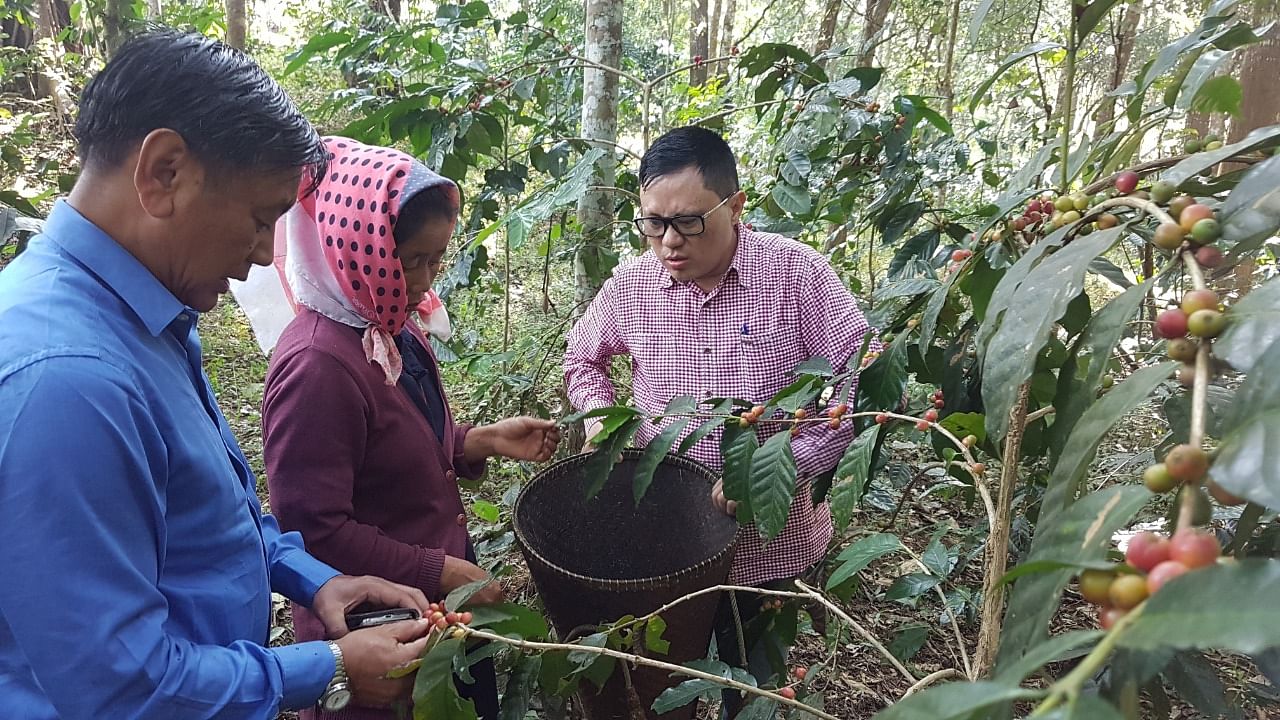
The "peculiar" citrus and fruity flavour of coffee grown on the hills of Nagaland are now adding something new to the cups of coffee connoisseurs.
The hills of Nagaland, which bore the brunt of militancy for years, are now growing organic coffee, which is not only being sold locally but exported for markets in South Africa and Arab countries.
Coffee, in fact, was introduced to the farmers of Nagaland in the 1980s when insurgency was at its peak. Lack of market linkages, mainly due to law and order issues then, however, forced the Naga farmers to give up the cultivation.
"As the situation improved, Nagaland government in 2016 again decided to revive coffee cultivation. A 10-day training programme at Central Coffee Research Institute at Chikkmagalur in Karnataka for agriculture and land resource department officials facilitated by the Coffee Board of India was a game-changer. Our officers learnt about the new varieties of coffee seeds, how to plant and grow them in the cool and hilly climate of Nagaland and passed on the knowledge to our farmers," Y. Kikheto Sema, agriculture production commissioner, Nagaland told DH.
Sema was heading the land resource department in 2016, under which coffee cultivation was done.
"In 2017, we signed an agreement with Noble Cause, a South African-based firm, and we exported seven metric tonnes of coffee from our old farms. As the farmers got convinced about markets and better price, they became more interested in coffee cultivation," Sema said.
Nagaland at present has nearly 10,000 hectares of coffee cultivation and it is taking steps to expand it to 50,000 hectares by 2030.
Parthapratim Choudhury, deputy director of the Coffee Board of India, said Nagaland coffee has a lot of potential due to its citrus flavour, which is 'peculiar' to the Himalayan coffee. "In Nagaland, the best Arabica varieties are grown to suit its climate. Coffee on Naga hills is grown under natural shades of the forests and are organic by default," he said. Choudhury is posted in Coffee Board's office in Jorhat in eastern Assam.
"As more time is given for ripening the coffee on Nagaland hills, it yields a well-balanced cup," he said.
Sema said, "Our aim is to generate at least one lakh jobs as Nagaland lacks industrial activities. Another aim is to prevent the impact of Climate Change by encouraging farmers to give up jhum (forests are slashed and burnt for farming) cultivation and switch over to coffee," Sema said.
The land resource department has exported 27.5 metric tonnes of coffee to the South African company, which signed an agreement to buy Nagaland coffee for 30 years.
"Two staff of the land resource department have got training in coffee development at the British Coffee School at Kathmandu. They will train up educated youths of Nagaland for coffee business. If we can develop 50,000 hectares of coffee, Nagaland would generate revenue of Rs. 1,630 crore," deputy director of land resource department, Puvil Kukhil said.
Nagaland Coffee, a joint venture between the land resource department and Naga Coffee Private Limited, a private firm that is selling processed coffee under the brand names: Zunheboto Coffee, Mon Coffee, Wokha Coffee and others. Zunheboto, Mon and Wakha are districts in Nagaland.